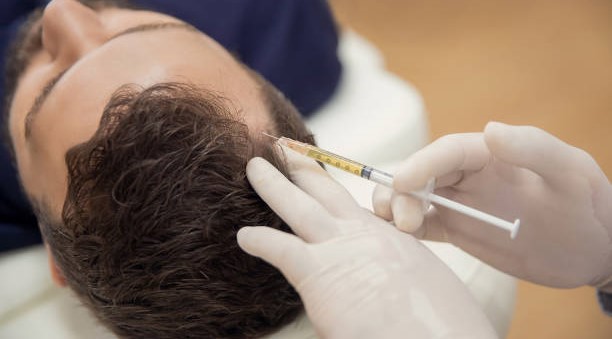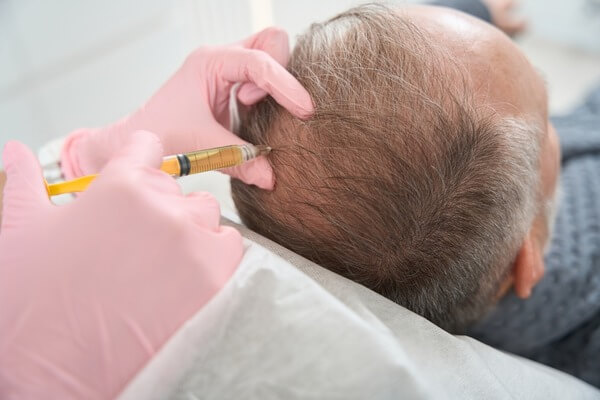

PRF Hair Loss treatment in Bangalore, during cosmetic procedures, Platelet-Rich Fibrin (PRF) has the potential to enhance the proliferation of human dermal fibroblasts and elevate the synthesis of type I collagen. Platelet-rich plasma (PRP) is widely recognized as a natural carrier for platelet-rich growth factors (GFs).
Genetic Hair Loss
Alopecia hair loss
Age related hair loss
Hormonal hair loss
Menopause Hair loss
Hair loss and thinning both male and female
Stress related hair loss
Nutrition related hair loss

Reduced Inflammation: Stem cells possess anti-inflammatory properties, which can help reduce inflammation in affected tissues and promote healing.
Improved Healing: Stem cell therapy can accelerate the body's natural healing process by promoting the growth of new, healthy cells.
Pain Relief: Stem cells have the potential to release factors that can help alleviate pain associated with various conditions, including joint pain and injuries.
Reduced Need for Surgery: In some cases, stem cell therapy may offer an alternative to invasive surgical procedures, providing patients with a less invasive treatment option.
Enhanced Recovery: Stem cell therapy can help improve recovery times following surgeries or injuries by promoting tissue repair and regeneration.
Potential for Personalized Medicine: Stem cell treatments can be tailored to individual patients, offering personalized approaches to address specific medical needs and conditions.
Minimized Risk of Rejection: Using a patient's own stem cells (autologous stem cell therapy) can help minimize the risk of rejection and immune reactions commonly associated with traditional organ transplants.
Improved Quality of Life: By addressing the underlying causes of various medical conditions and promoting healing, stem cell therapy has the potential to improve patients' quality of life and overall well-being.
Potential for Long-Term Benefits: While further research is needed to fully understand the long-term effects of stem cell therapy, initial studies suggest that the benefits of treatment may extend beyond the immediate term, offering lasting improvements in health and function.
Treatment of Chronic Diseases: Stem cell therapy holds promise for treating a variety of chronic diseases and conditions, including neurodegenerative disorders like Parkinson's disease and multiple sclerosis, autoimmune diseases, cardiovascular diseases, and orthopedic injuries.
The timeline for seeing results varies depending on the condition being treated. Some patients may experience improvements shortly after treatment, while others may see gradual progress over weeks or months. Long-term benefits are an active area of research.
While stem cells have shown remarkable potential in treating and managing certain diseases, the term "cure" may be an oversimplification. Stem cell treatments aim to improve symptoms, promote healing, and in some cases, modify the course of diseases, but complete cures may not be guaranteed.
Risks and side effects can include infection, bleeding, and in some cases, an immune response against the introduced cells. The specific risks vary based on the type of stem cells used and the method of administration.
While stem cell therapy is generally considered safe, the safety profile can depend on factors such as the type of stem cells used, the method of administration, and the specific condition being treated. Risks and benefits should be thoroughly discussed with healthcare professionals.
Stem cell treatment is being researched and utilized for a variety of conditions, including orthopedic injuries, neurodegenerative disorders, autoimmune diseases, cardiovascular conditions, and more. The efficacy varies, and ongoing research is essential for expanding the range of treatable conditions.
Stem cell treatment involves the extraction of stem cells, either from the patient's own body (autologous) or from a donor (allogeneic), and their introduction into the affected area. The cells can be administered through injections, infusions, or surgical procedures, depending on the condition being treated.
Copyright @ VCUS Healthcare Center. All Rights Reserved | Designed By Channel Softech